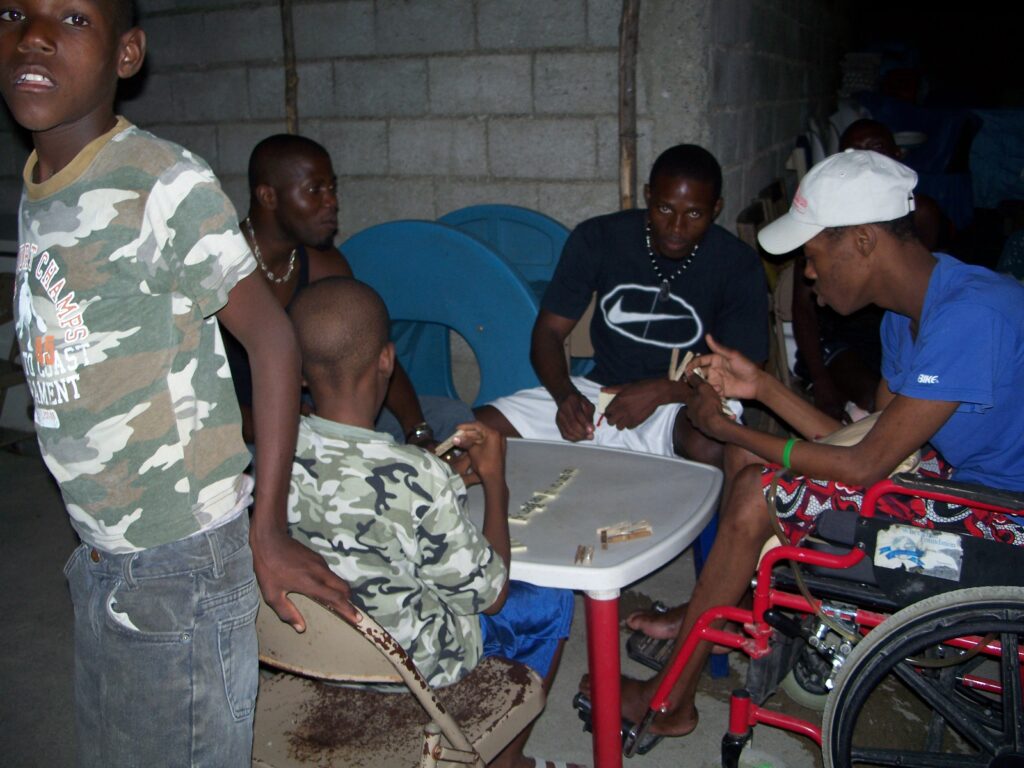In Haiti, dominoes is more than just a game—it’s a part of everyday life and culture. Walk through any neighborhood and you’ll likely spot a group of people gathered around a table, laughing, playing, and enjoying the game. While it only takes two players, four is the most common. It’s usually men playing, but women join in too.
Dominoes often comes with fun little punishments for the loser—like standing up while holding your chair, keeping a leaf in your mouth, putting clothes pins on your ears and lips or drinking a glass of water. These playful rules make the game even more entertaining.
Dominoes also plays a big role in Haitian funerals. The night before the service, families host an all-night wake where neighbors gather to cry, talk, eat—and play dominoes. Families often set out several sets to encourage people to come, especially those who might not have planned to attend. It’s a way to share comfort and companionship in a hard time.
Many young people pass the time by playing dominoes in their yards or by the road. Sometimes they play for fun, but others play for small prizes like candy or money. When money is involved, the game can get serious and sometimes even lead to arguments. But for most, dominoes is about connection, laughter, and a break from life’s stress.



